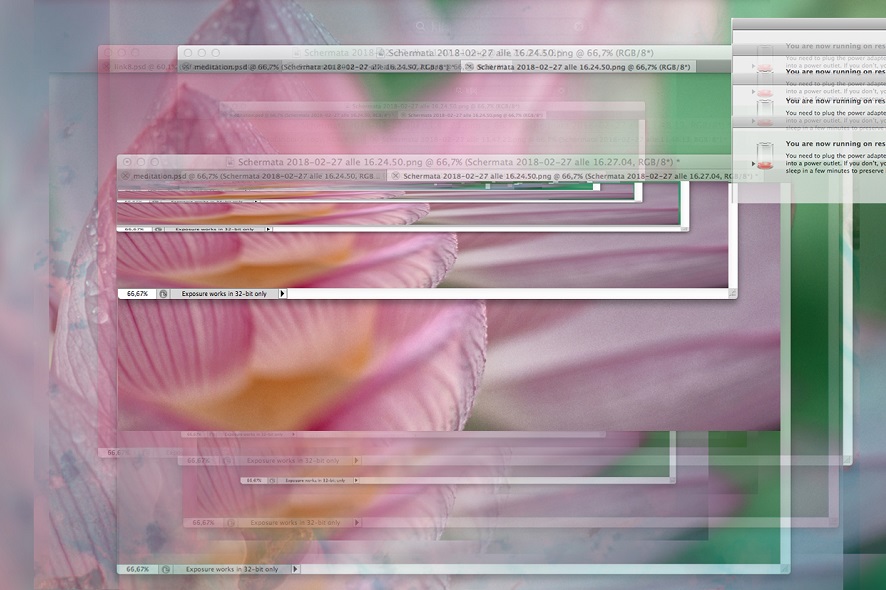Utopias and visions of the future, but also sustainability and a trend back to analog, are themes that many students in Linz Art University’s Interface Cultures program have particularly focused on in the past year. Several noteworthy takes will be presented in “Please Recharge,” this year’s Campus Exhibition at the Ars Electronica Festival, September 6-10, 2018. Christa Sommerer, founder and director of the Interface Cultures program, gave us a preview in this interview.
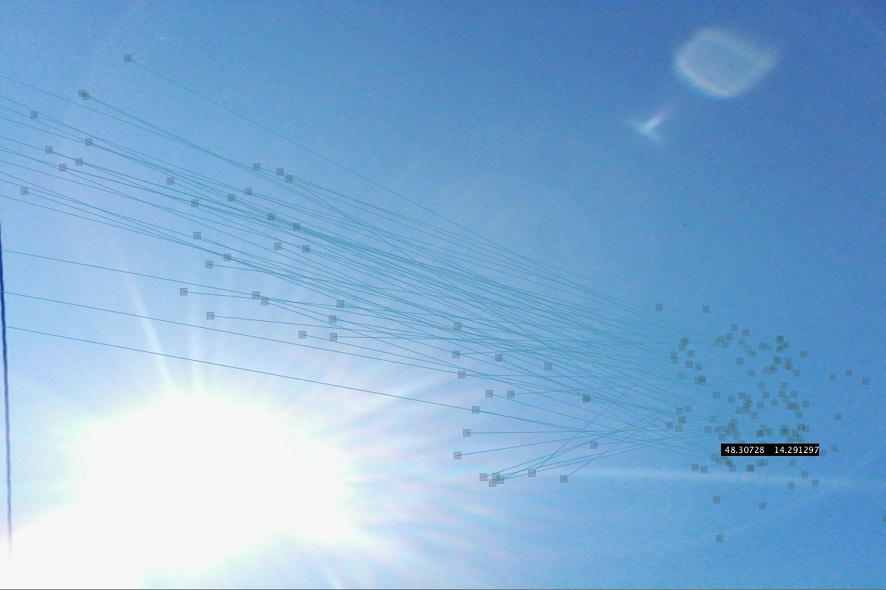
Vanishing Point. Credit: Laura Cassol Sôro
The Interface Cultures program is exhibiting selected works by students at the Ars Electronica Festival once again this year. How are we to understand the “Please Recharge” theme?
Christa Sommerer: This is about the fact that even members of the younger generation have come to realize that the world of media has gotten to be too much for them. These students have to be online constantly, taking part in everything. This state of permanent accessibility, always networking, constant presence in all social media, marketing oneself 24/7 is overwhelming even young people. There’s a certain longing for deceleration. Sustainability is another key topic—being able to take time again, having time for contemplation, and feeling less like a victim. Actually, a kind of work-life balance is what the younger generation is seeking here, and I think it’s of utmost importance to make this our theme. So, many of the projects we’re showcasing address precisely this issue: sustainability, deceleration, getting back to the haptic and analog. This is a retro longing, a yearning for the good ol’ days, but, of course, with modern means and new transformations.
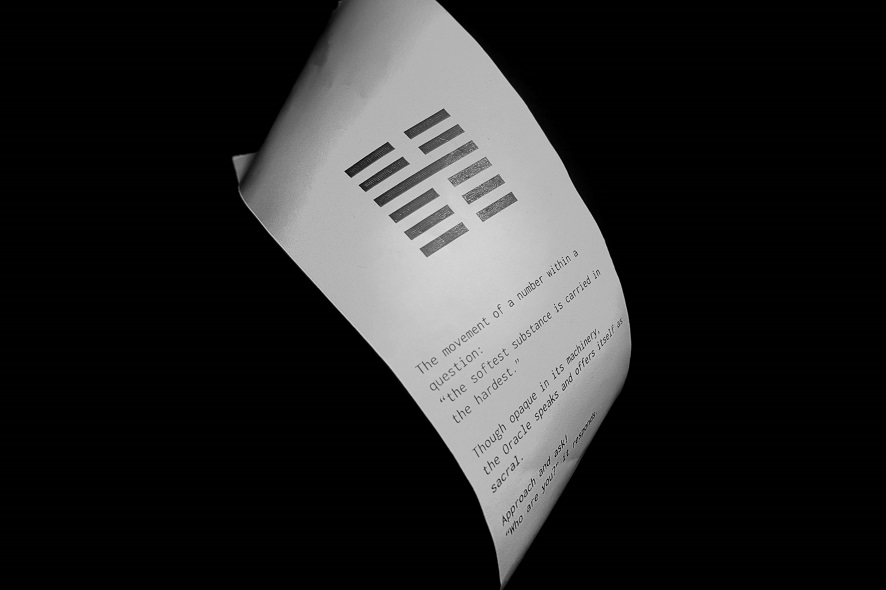
The One Who Knows. Credit: Giacomo Piazzi, Ben Olsen
Describe the process of arriving at this theme, if you will.
Christa Sommerer: Throughout the year, we observe the themes students are working on. Specifically, a work by Sofia Braga was the point of departure. “You Are Running out of Battery” consists of a mattress that installation visitors can lie down on. You relax while your cell phone is charged; at the same time, you receive information via a meditatively designed website that discusses that one no longer has energy. We found that there are several works that can be subsumed under this topic—for example, “The One Who Knows” by Giacomo Piazzi and Ben Olsen, a search engine that doesn’t draw upon genuine data or major search engines. Users can enter queries that are responded to by I Ching Puzzle, a Chinese wisdom website. Thus, you get answers to life’s big questions. The point of this is the mystification of knowledge.
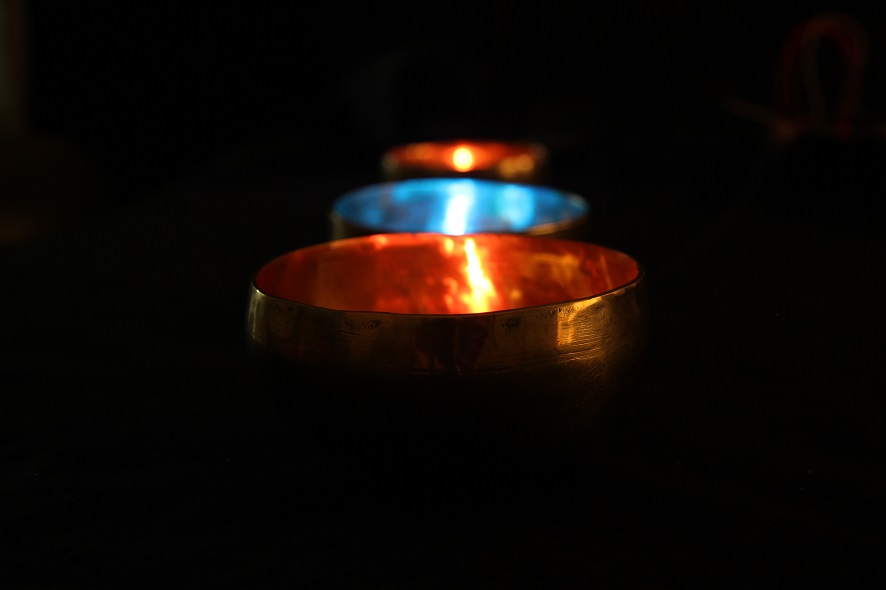
inMemory´. Credit: Stevie Jonathan Sutanto
Issues such as media overload and deceleration bring the “Please Recharge” exhibition into close substantive proximity to the Festival theme, ERROR – The Art of Imperfection…
Christa Sommerer: Yes, indeed. Students are also focusing on “future scenarios” or utopias at the moment. How can we configure a better future? Needless to say, nobody has an answer; it’s the process of questioning that’s the driving force. How might we make ourselves more independent again? What new suggestions of speculative designs can we come up with to bring about change? People want to uncouple.
The works on display are highly multifaceted. So, Interface Cultures isn’t only about interfaces?
Christa Sommerer: Interface Cultures is actually a term coined by Steven Johnson. When we set up this program, we referred to this. But we’ve always stressed that this isn’t purely a matter of technical solutions; we’re actually after something conceptual. We pose the question: What actually is an interface? This can be put in very wide-ranging terms—it can be a concept; it can be a utopia. What we’re most interested in is how technologies transform our life, and how we as artists can have a say in this. That’s why it’s important to bring in these utopian concepts and to design prototypes that envision a new future. It doesn’t necessarily have to have anything to do with technology.
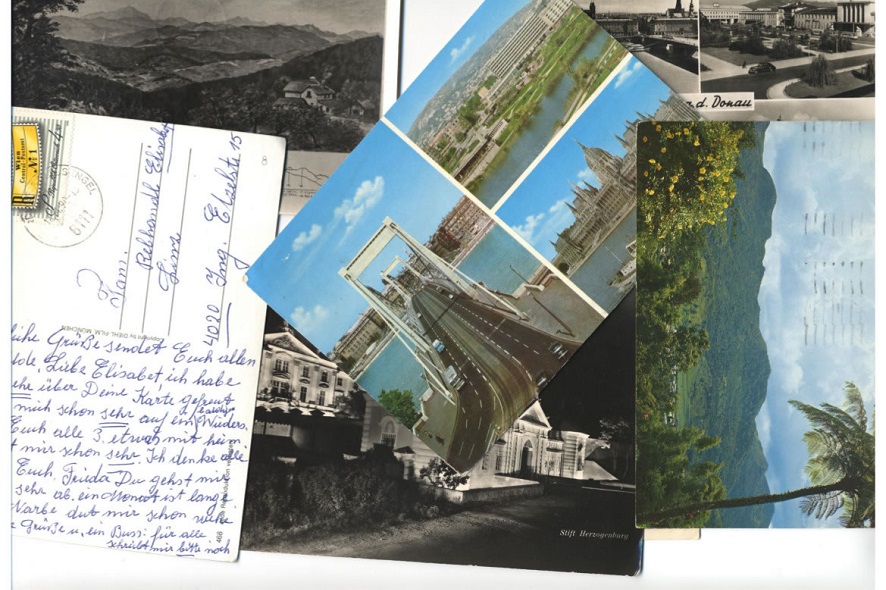
Schreib bitte wieder bald, ich warte jeden Tag auf Post. Credit: Ilona Stütz, Astrid Dober
Speaking of utopian concepts—it’s fascinating to see, on one hand, that utopias are the big thing at the moment and, on the other hand, rebellion against the prevailing obsessive optimism.
Christa Sommerer: Exactly. But you also have to note that many students, once they’ve graduated, land in reality and see how they can apply in actual companies what they’ve learned in school. Nevertheless, I find it extremely important for a university to offer this latitude, this free space in which students can ask: How do I imagine the future; how would I like to improve things? And perhaps students will somehow succeed in transforming these ideas in some way into real-world products or to apply them in terms of great art concepts. In this sense, Ars Electronica is a great test. You can try out your own ideas and see if people react to them. It’s a wonderful opportunity.
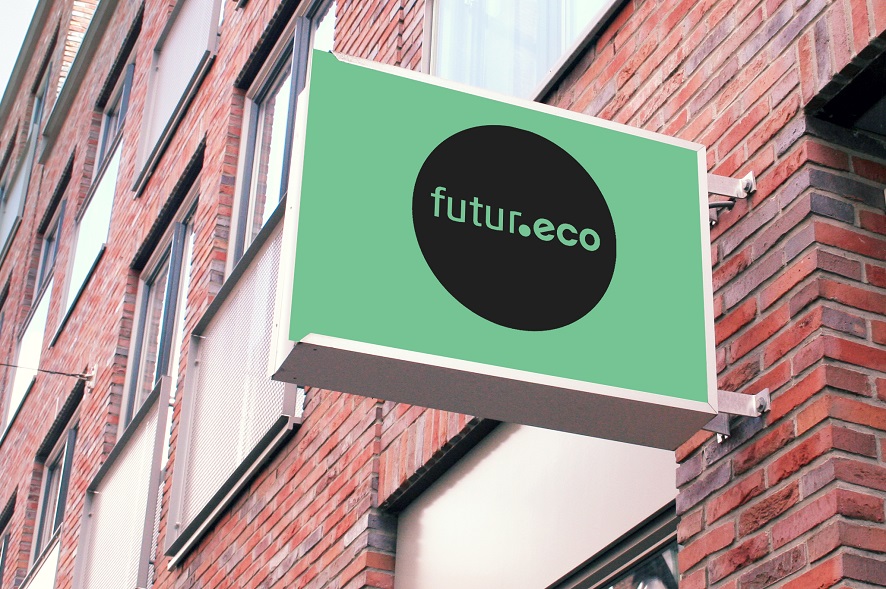
futur.eco. Credit: Julia Nüßlein
Are you willing to give us a sneak preview of the highlights?
Christa Sommerer: One is Hiu-wai Chan’s “Leader X,” artificial intelligence software containing an algorithm that visitors can use to generate their own politicians. “futur.eco” by Julia Nüßlein proffers speculative prototypes: How can the future be designed to be better, to be more sustainable? How can one initiate a discussion?
There’s also a totally analog project, “Please write back soon, I wait every day for mail” by Ilona Stütz and Astrid Dober. They went to flea markets and paid a pittance for lots of old postcards. Their installation will consist of a desk, a ballpoint pen and labels on which visitors can write their own address or that of someone else to whom they’d like to send a postcard, which is thus recycled and mailed. In other words, this is a step back into the past—instead of an e-mail or WhatsApp, the addressee receives an actual postcard! This celebrates the old-fashioned custom of saving letters.
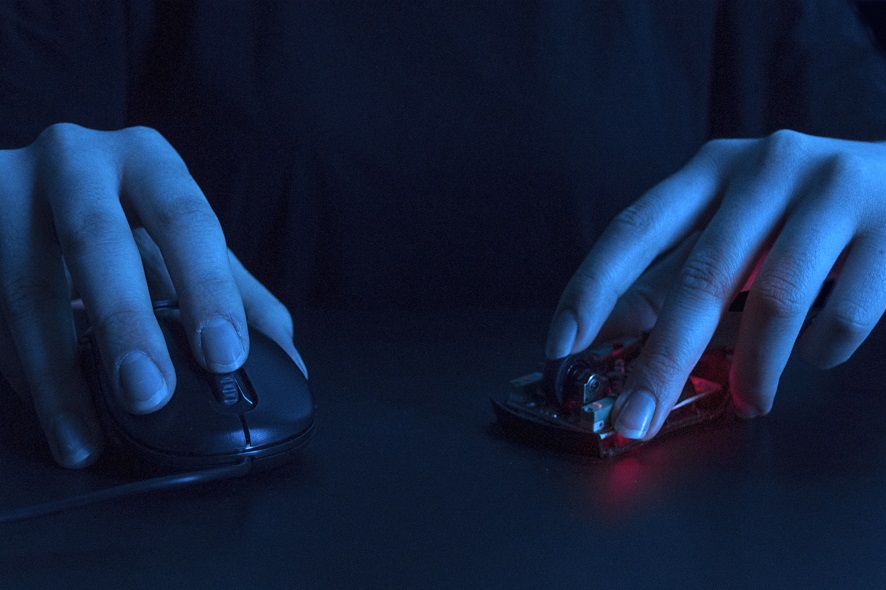
mice. Credit: Julia del Río
What’s the link between this urge to go back to the analog and an academic program—and a festival, for that matter—that are very much oriented on the future and high-tech?
Christa Sommerer: I simply find it important to pose such questions. This constant preoccupation with faster, further, bigger, more—I believe this overwhelms people. As a designer or artist, you have to confront this topic and question this situation. What are really important questions? I think it’s totally legitimate to say that a certain saturation has set in. On the other hand, it’s also the case that many working in analog art forms like ceramics, sculpture and painting are now doing so with digital media. A sort of merger is occurring. I’m incredibly fascinated by what’s going on at the moment—that this post-digital world—which is very strongly based on digital technology—is being thematically linked with traditional art forms. This trend has manifested itself in the last few years.

Christa Sommerer is an internationally renowned media artist, scholar and pioneer of interactive art. She is a professor at Linz Art University and director of that Austrian school’s Interface Cultures program. Previously, she was an associate professor at the International Academy of Media Arts and Sciences in Gifu, Japan, as well as a scholar at and artistic director of the ATR Media Integration and Communications Research Lab in Kyoto. She has been a visiting researcher at MIT CAVS in Cambridge, USA, and at the Beckmann Institute in Champaign Urbana, USA, and an artist-in-residence at the NTT InterCommunication Center in Tokyo. Sommerer was Obel Guest Professor at Aalborg University, Denmark, and at Tsukaba University Empowerment Informatics Studio in Japan. Together with Laurent Mignonneau, she has created approximately 30 interactive works of art that have been honored with several awards: the 2016 ARCO BEEP Award in Madrid, Spain, the 2012 Wu Guanzhong Art and Science Innovation Prize of the Peoples Republic of China, and a 1994 Golden Nica from the Prix Ars Electronica. Works by Sommerer & Mignonneau have been shown in about 280 international exhibitions, and are in museums and private collections worldwide.
The Campus Exhibition of Linz Art University’s Interface Cultures program will run in POSTCITY Linz during the 2018 Ars Electronica Festival, September 6-10. Details will soon be posted to our website.
To learn more about Ars Electronica, follow us on Facebook, Twitter, Instagram et al., subscribe to our newsletter, and check us out online at https://ars.electronica.art/news/en/.
